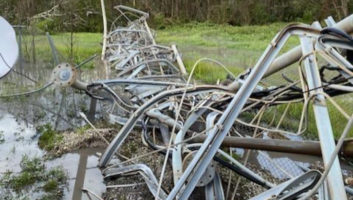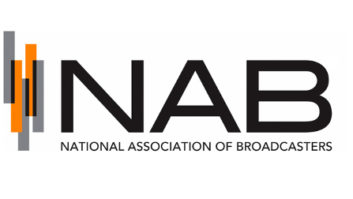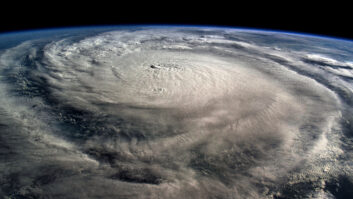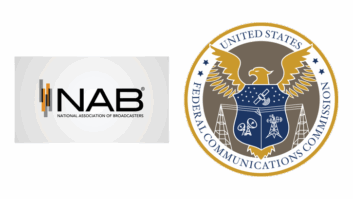
Update: The NPRM described below has been adopted, so the FCC will take comments on the proposals described.
This year’s hurricanes and wildfires are prompting the FCC to closely examine the protocols it uses to gather communications infrastructure information from broadcasters and others following a natural disaster or unpredictable disaster.
The FCC this week will consider an item that could make it mandatory for broadcasters to report outages following natural disasters, according to a draft of the Notice of Proposed Rulemaking. That would be a change from the current Disaster Information Reporting System (DIRS), which makes such submissions voluntary.
The draft notice seeks comment on ways to improve DIRS and the overall reliability and resiliency of communications networks during emergencies.
[Read: Rosenworcel Gives CSRIC Its New Charge]
The FCC established the web-based DIRS in 2007 following Hurricane Katrina. During times of emergency, DIRS enables broadcasters to report service degradations and request assistance if necessary. Typically the FCC compiles the data and provides network status information to federal emergency management officials as well as publishes reports of restoration information without company-identifying information.
The commission uses the information gathered through DIRS and the Network Outage Reporting System (NORS) to develop situational awareness during communications outages and analyze outage trends, such as an increasing trend in network disruptions caused by power outages.
Some of the questions the draft rulemaking proceeding asks are whether DIRS reporting should be made mandatory, what kind of burden that mandatory reporting would place on broadcast stations and whether the burden of mandatory reporting would impede a station’s coverage of the emergency.
Other questions posed in the draft proposal ask if the FCC has the legal authority to mandate such reporting and consideration of what penalties could be imposed for failing to report.
The draft notice, which specifically mentions Hurricane Ida and the damage it did to the Gulf Coast region in late August, also seeks comment on ways to mitigate the effects of power outages on communications network operations in the aftermath of disasters.
The loss of power following Hurricane Ida in is specifically addressed in the draft proposal. The FCC says especially hard hit were cell tower sites that lacked backup power infrastructure.
“NORS and DIRS data collected by the commission in the aftermath of Hurricane Ida and other recent disaster events reveal that a lack of commercial power at key equipment and facilities is the single biggest reason why communications networks transmitting 911 service and related emergency information fail in the aftermath of disaster events,” the draft proposal say. “For example, the commission’s DIRS data show that the majority of cell site outages in the immediate aftermath of Hurricane Ida’s central disaster region were due to a lack of commercial power availability.”
[Read: Big Louisiana Radio Tower Comes Down in Ida]
In fact, the FCC is considering backup power requirements for DIRS and NORS participants, according to the proposal.
“To the extent that the commission were to adopt backup power requirements, providers subject to them, potentially including cable providers, Direct Broadcast Satellite providers, Satellite Digital Audio Radio Service, TV and radio broadcasters, Commercial Mobile Radio Service and other wireless service providers, wireline providers and VoIP providers, could potentially be required to take steps to make their networks more resilient to power outages,” it stated.
The commission says it is mindful that providers subject to any new rules will incur costs should the proposals be adopted, according to the draft notice.
The FCC believes the increasing frequency of natural disasters is reason enough to examine the resiliency of the communications grid across the country, according to the draft proposal.
“If the current trend continues without corrective action, the frequency of outages will worsen in coming years as the nation experiences disaster events of increasing severity, duration, and impact, including hurricanes, flooding, and wildfires,” the draft NPRM says.
FCC Acting Chairman Jessica Rosenworcel is visiting Baton Rouge, La., on Wednesday to survey firsthand Hurricane Ida recovery efforts.
Supporting resilient infrastructure has never been more important. The FCC is committed to supporting recovery efforts and doing all we can to help restore communications networks as quickly as possible,” Rosenworcel said in a press release. “I look forward to traveling to Louisiana to learn firsthand what worked, what didn’t, and where the FCC can do better.”
The FCC will consider the draft NPRM at its Sept. 30 open meeting. A comment period will commence following publication of the NPRM in the Federal Register.





